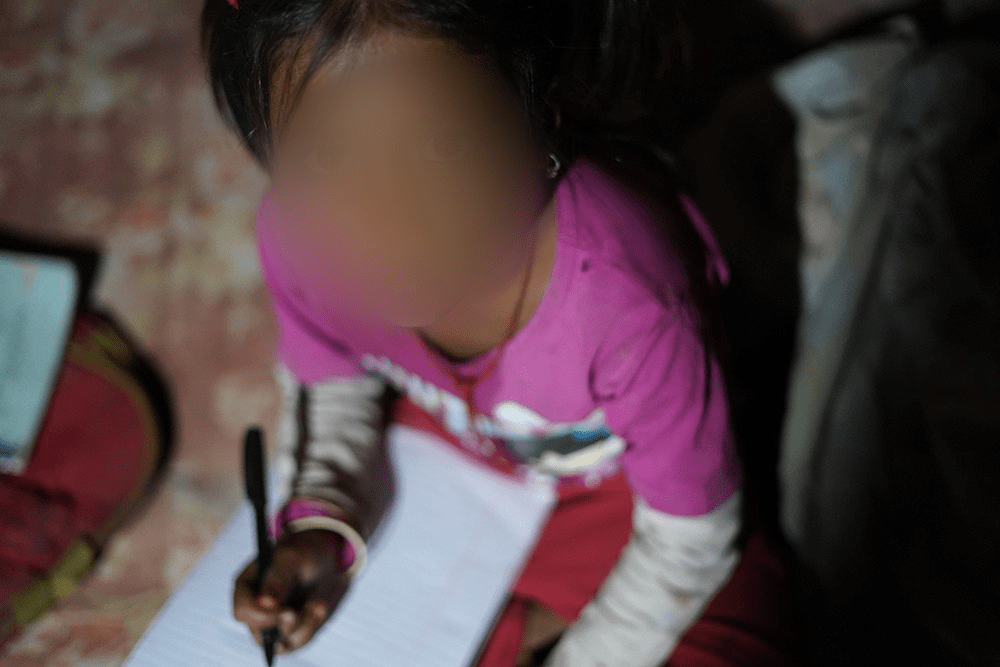An autorickshaw spots mother-daughter duo begging near a railway station
Aarti was a four-year-old living with her parents in Karnataka. She was the only child to her parents. Her father was the sole earning member of the family and her mother was a homemaker. Her family’s financial situation was in a bad state. Among all of this basic information, one may question as to how did Aarti and her mother land at
Railway Children India’s (RCI’s) Child Help Desk (CHD).
One day in mid-October of 2020, an autorickshaw driver brought Aarti and her mother at the CHD at Bhubaneswar railway station. He said that he spotted both of them sitting outside the railway station. They were in a miserable state, looked confused and afraid. The mother was anxiously asking for help from passersby. Their presence raised a doubt in the driver’s mind, and showing presence of mind, he escorted both of them to the CHD.
Resolving the language barrier during our intervention
As soon as they were brought to the CHD, our team initiated the protocol. Both the mother and child were first provided with food, water and other essentials in tune with the demands of the pandemic situation. However, our team was soon met with a language barrier. Neither of them could only converse in Kannada. Since no one in our team could either understand or speak Kannada, we sought help from one of our stakeholders. He mediated as a translator between the mother-daughter and our team.
The intervention procedure with Aarti’s mother was an arduous one. She often changed her narrative and attempted to mislead our team; however, we had a series of conversations with her. With each conversation, our aim was to make her mother more aware about RCI’s functioning, expanse of work and impact.
What made a mother-daughter duo take to begging for a survival?
After an exhaustive intervention process, Aarti’s mother shared the real story behind them becoming homeless. She had fought with her husband because he would torture her both mentally and physically. His abuse towards her had become a regular affair. The father would also neglect Aarti and her well-being, simply because she was a girl child. All of these reasons, one day, culminated in frustration and a breaking point for Aarti’s mother. Finally, she left the home with Aarti and she reached Bhubaneswar railway station and lived at the station periphery for nearly a month. During her time on the streets, they begged for survival. However, in the past two days, her physical health had taken a beating; she was suffering from severe fever. Fortunately, around the same time, the autorickshaw driver spotted the mother-daughter and brought them at the CHD.
It must be noted that around the same time, and even much before, our team at RCI had begun spreading awareness regarding child safety and protection among our stakeholders and passengers. RCI’s awareness programs helped people like the alert autorikshaw driver to approach our help desk confidently.
Moving into an open shelter
After our counselling sessions with Aarti’s mother, our counsellor explained the dangers she may have exposed Aarti to because of her decision to leave home. She soon realized her mistake and sought safer options for Aarti and herself. Aarti and her mother were stationed at a shelter for further care and protection, as advised by the Child Welfare Committee members. They were both tested for Covid-19 before they were moved to the shelter and were made aware about hygiene practices such as washing hands at regular intervals and wearing a mask at all times.
Currently, both Aarti and her mother are staying at the open shelter, Swadhar Ghar.





